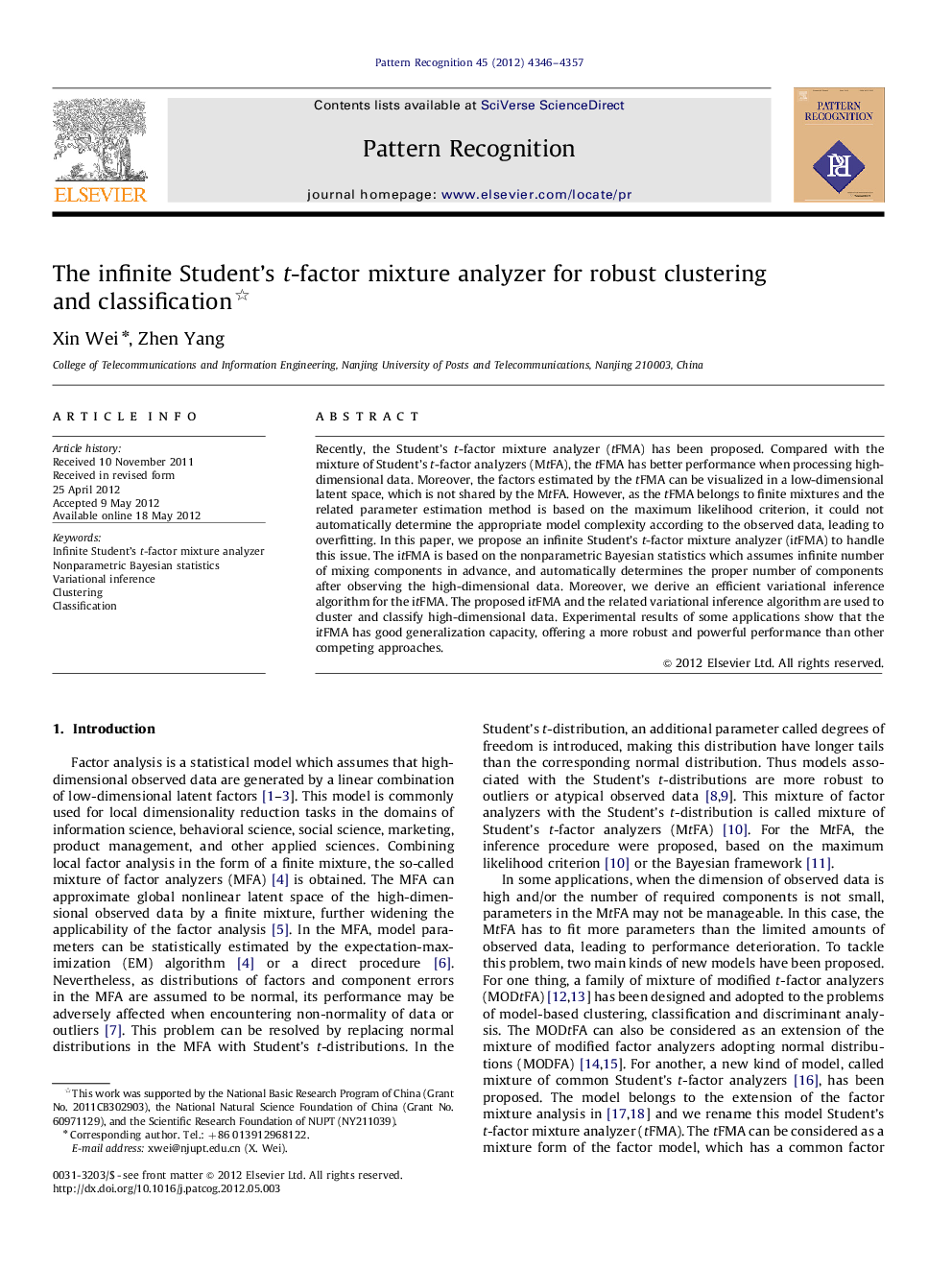| Article ID | Journal | Published Year | Pages | File Type |
|---|---|---|---|---|
| 530142 | Pattern Recognition | 2012 | 12 Pages |
Recently, the Student's t-factor mixture analyzer (tFMA) has been proposed. Compared with the mixture of Student's t-factor analyzers (MtFA), the tFMA has better performance when processing high-dimensional data. Moreover, the factors estimated by the tFMA can be visualized in a low-dimensional latent space, which is not shared by the MtFA. However, as the tFMA belongs to finite mixtures and the related parameter estimation method is based on the maximum likelihood criterion, it could not automatically determine the appropriate model complexity according to the observed data, leading to overfitting. In this paper, we propose an infinite Student's t-factor mixture analyzer (itFMA) to handle this issue. The itFMA is based on the nonparametric Bayesian statistics which assumes infinite number of mixing components in advance, and automatically determines the proper number of components after observing the high-dimensional data. Moreover, we derive an efficient variational inference algorithm for the itFMA. The proposed itFMA and the related variational inference algorithm are used to cluster and classify high-dimensional data. Experimental results of some applications show that the itFMA has good generalization capacity, offering a more robust and powerful performance than other competing approaches.
► We propose the infinite Student's t-factor mixture analyzer (itFMA) model. ► We derive an efficient variational Bayesian inference algorithm for the itFMA model. ► This approach (model + inference algorithm) is used to cluster and classify the high-dimensional observed data. ► This approach can determine appropriate model complexity and is robust to outliers.
